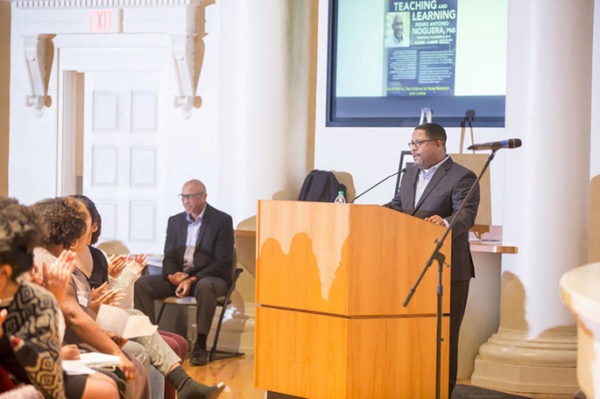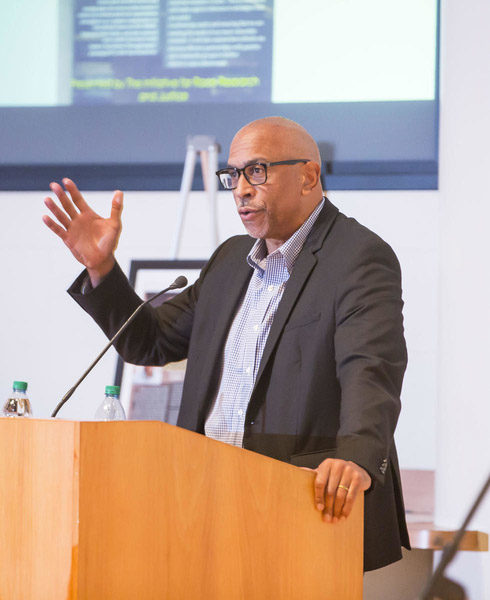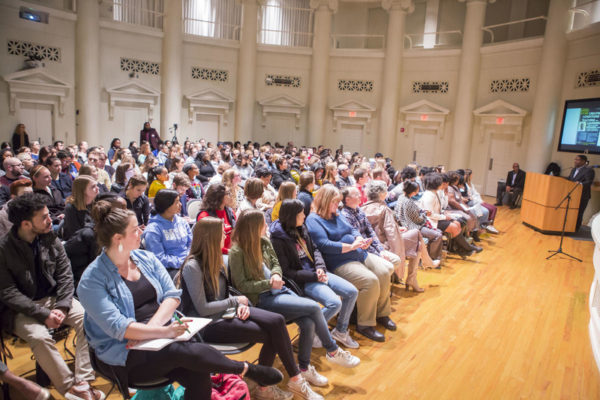
Twenty years after "No Child Left Behind" America is still failing its most vulnerable students, particularly students of color, said acclaimed education scholar, author and activist Pedro Noguera during his invited lecture held at Vanderbilt Peabody College of education and human development Nov. 20.

Noguera's talk was the inaugural event of the new Initiative for Race Research and Justice, led by founding director H. Richard Milner IV, Cornelius Vanderbilt Distinguished Professor of Education at Peabody.
Noguera, Distinguished Professor of Education at the Graduate School of Education and Information Studies at UCLA, addressed a standing room only crowd of faculty, students, staff and members of the greater Nashville community in the Wyatt Center Rotunda.
"Lawmakers are not focused on what is happening in neighborhoods and communities; they are focused on achievement and test scores," Noguera said. "But those scores aren't improving because kids who don't have a safe place to live don't do so well in school.
"It's not because poor children are unable to learn. Poverty is not a disability. It's just that when poverty is ignored it can be disabling."
Noguera said that for many children public schools are "… all that remains of the social safety net for our kids." He describes conditions in which teachers must serve as social workers and schools are asked to "fix problems they cannot solve alone."

He suggests lawmakers learn from the successes of schools getting it right, citing examples in New York: P.S. 138 in the South Bronx, and Harlem Children's Zone; and in Los Angeles: King/Drew Magnet School of Medicine and Science and Mann UCLA Community School.
"In these schools, children are treated like they are special every day," Noguera said. "The needs in their communities are addressed. They are not punished for being black children. They are celebrated. And they have some of the highest success rates in the country. Some say these models are too expensive to replicate, and true, these are expensive. But failure is costly too."
In these schools they are treated like they are special every day. They are not punished for being black children."
-Pedro Noguera
Noguera bolsters his point by describing America's massive penal system, which spends more than $200,000 per year to incarcerate a juvenile. Just $14,000 a year is allocated to educate a child.
"We are investing in the wrong things," he says. "We are spending too much on systems that don't work. Lawmakers need to look at what's working and what researchers are telling them. We must lead and act."
Noguera's visit is the first of more programming planned by the Initiative for Race Research and Justice at Vanderbilt, Milner said.
"I truly believe the research we do on and about race has the potential to help people and to transform oppressive and racist institutions and systems," Milner said. "A central aim of the initiative is to work in partnership with communities to build a robust research agenda designed to improve the human condition through anti-racist policies and practices. We not only want to know more through the research we conduct, we plan to improve the world with what we learn."






